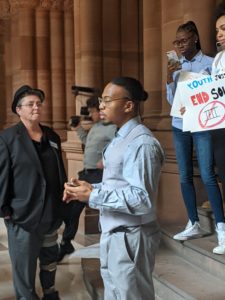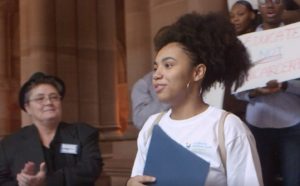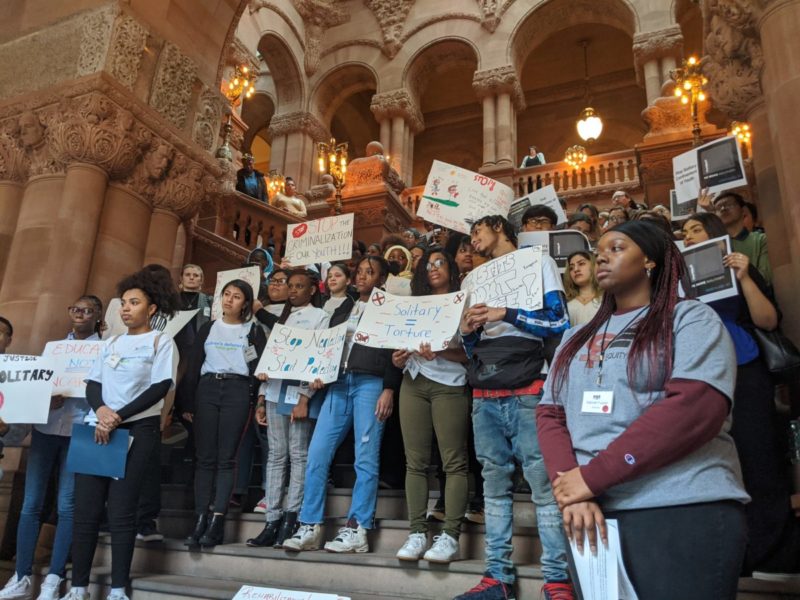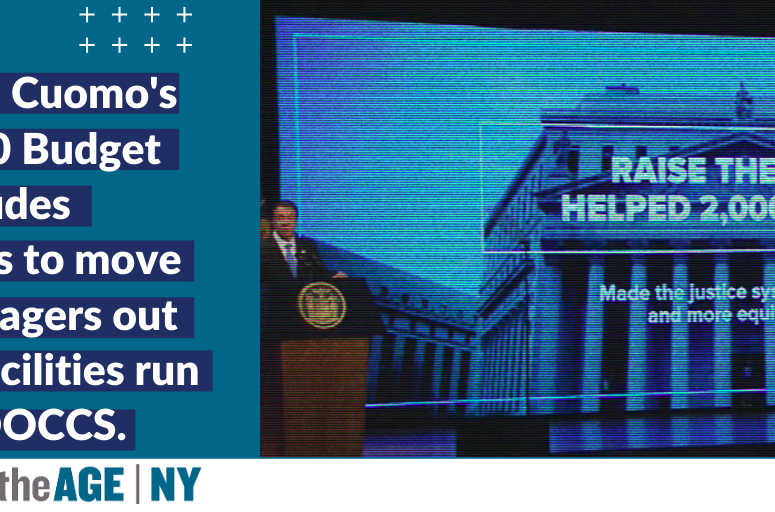On January 27th, more than a hundred young people, allies, advocates and legislators rallied to set out a new four-point-policy platform for Achieving Youth Justice in 2020. Read some of the testimony and insights from some of the young leaders who spoke below.
“Young people who have been arrested and deemed offenders need opportunities. We need a fair chance to climb up the ladder and achieve success, but when you look at the laws that we have the reality is that they don’t give us a fair chance. They criminalize people. They put up barriers, obstacles, and discriminate. They make it hard to find jobs, housing, and get into school. Everyone makes mistakes, but many of us are dealt a bad hand before we even get to play the game.”
– Michael Clark, youth advocate with Youth Represent

“Prison is widely known as one of the toughest places on earth. It exposes people to a side of reality that they shouldn’t want to come to back to. But most kids just aren’t capable of understanding that. Sending kids to adult facilities only furthers the continuation of the ‘tough guy’ image in communities like mine, that’s why the work we’re doing is so profound.”
– Jamal Wilson, youth advocate with Youth Represent
“16-year-olds and 17-year-olds have been kept in facilities that are operated by the same people who control our state adult prisons. This is not okay, because 16- and 17-year-olds should not be subjected to treatment that adults, who have already developed, are being put through. This is not what we wanted. We wanted a space that would allow the children to develop with staff who were experts on working with youth. We need a space that supports our education, mental health, and the enormous amount of brain development that happens at a young age.
– Kylie Gil, Beat the Odds alumna and youth advocate with Children’s Defense Fund-NY

“The idea of arresting elementary school kids is wrong. They don’t belong in handcuffs, or police cars, or detention. In New York City more than 93% of children under 12 who were arrested in 2017 were Black and Latinx. The process that kids can be put through when they are arrested is that they can be put in handcuffs, brought into a police car and interrogated. Mind you that this is very similar to the process that adults are put through. Not to mention that the youngest that you could be arrested is at age 7. At 7 years old. Second grade. Your brain isn’t even fully developed at 7 years old. It’s still like a sponge. Imagine a child put through this traumatic experience. We need to help kids, get them services if they need them, and build systems of restorative justice that helps them learn from their mistakes. Let’s raise the age of delinquency to 12.”
– KJ Morris, Beat the Odds Scholar, youth advocate with Children’s Defense Fund-NY
“Our youth are our present, not just our future leaders. We need to be invested in and protected, not criminalized and thrown away. Solitary confinement for teens and the prosecution of children as young as seven years old must stop. We need to strengthen and expand our youthful offender law so that it is possible for us to thrive in the world we live in. We are counting on our legislators to help support us.”
– Aaliyah Guillory-Nickens, youth advocate with Youth Represent


